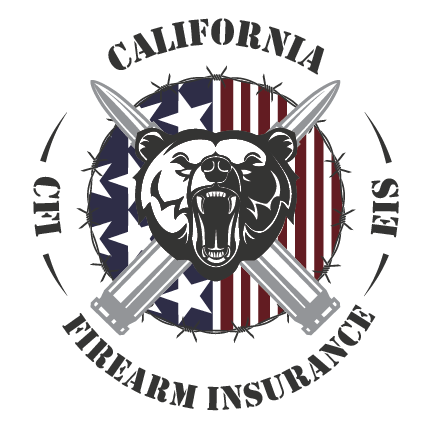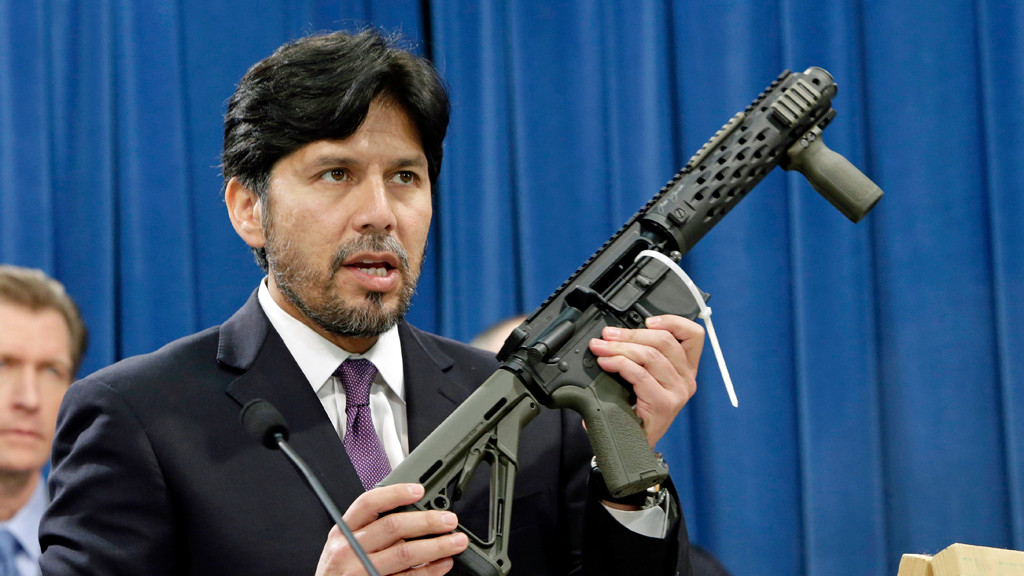New gun restrictions coming to California in 2020. Here’s what lawmakers passed this year
California lawmakers had another busy year passing gun-related legislation. Gov. Gavin Newsom, a staunch proponent of gun control, signed more than a dozen bills one day this fall.
Most of this year’s gun laws expand existing regulations, but the changes they enact could have sweeping repercussions for gun owners. They increase fees, expand the state’s “red flag” and gun-storage laws, raise the legal purchase age and set caps on the number of guns Californians can buy.
New gun laws, widely supported by the state’s large politically liberal population, haven’t always gone smoothly for California’s estimated 4.2 million gun owners and another 3.1 million adults who live with them.
Recently, tens of thousands of gun owners have been blocked from buying ammunition under the spate of gun-control laws that Newsom championed as he was gearing up to run for governor.
The Sacramento Bee first reported earlier this month that one in five Californians have been denied buying ammunition, usually for errors and omissions in the database used in the state’s new background check program, which took effect July 1.
Here’s a list of the gun laws California lawmakers passed this year and when they take effect.
NEW GUN LAWS FOR 2020
- If you have a gun-violence restraining order, you’ll be prohibited from buying a firearm for up to five years, under AB 12 by Assemblywoman Jacqui Irwin, D-Thousand Oaks. It takes effect Sept. 1.
- An employer, coworker, employee or teacher can seek a gun-violence restraining order from a court, allowing police to remove firearms from someone making threats, under AB 61 by Assemblyman Phil Ting, D-San Francisco. It takes effect Sept. 1.
- You can’t buy guns in California if you are prohibited from buying guns in another state, under AB 164 by Assemblywoman Sabrina Cervantes, D-Corona. The bill takes effect Jan. 1.
- California law enforcement agencies before Jan. 1, 2021 must develop and adopt written policies and standards regarding the use of gun violence restraining orders under Irwin’s AB 339.
- Suicide warning labels must be on gun packages and in gun stores by June 1, under Irwin’s AB 645. The handgun safety certificate test also will cover the topic of suicide.
- Certain gun “precursor” parts must be sold through a licensed vendor under AB 879 by Assemblyman Mike Gipson, D-Carson. Provisions of the bill begin to take effect in 2023, 2024 and 2025.
- No more firearms and ammunition can be sold at the Del Mar Fairgrounds in San Diego after Jan. 1, 2021, under AB 893 by Assemblyman Todd Gloria, D-San Diego.
- The $100 cap on processing fees for concealed firearm licenses is going away with the passage of AB 1297 by Assemblyman Kevin McCarty, D-Sacramento. County sheriffs can now charge “an amount equal to the actual costs for processing the application,” according to the bill, which takes effect Jan. 1.
- If you have a gun-violence restraining order against you, you can fill out a form that says you’re willing to relinquish your guns, under Ting’s AB 1493. The bill takes effect Sept. 1.
- Nonprofits “that are at high risk of terrorist attack due to ideology, beliefs, or mission” can apply for state grants of up to $200,000 from a newly formed State Nonprofit Security Grant Program to beef up their onsite security. The bill, AB 1548 by Assemblyman Jesse Gabriel, D-San Fernando Valley, was in response to mass shootings at mosques, churches and synagogues.
- Starting Jan. 1, the fees Californians pay the state when purchasing a firearm will climb to $38.19, with the passage of AB 1669 by Assemblyman Rob Bonta, D-Alameda. The bill also updated California’s legal code to reflect that gun show regulations apply to ammunition vendors.
- If you’re younger than 21, you can’t buy a semiautomatic center-fire rifle starting Jan. 1. SB 61 by State Sen. Anthony Portantino, D-La Cañada Flintridge, also prohibits Californians from buying more than one semiautomatic center-fire rifle in a 30-day period beginning on July 1, 2021.
- Beginning Jan. 1, the owner of any unlocked gun taken out of a home by a child or a “prohibited person” can be charged with a crime and penalized with a 10-year ban on gun ownership under Portantino’s SB 172. The bill also set gun storage requirements for nursing homes.
- The number of transactions a gun seller can make without a firearms dealer license is now limited to six per year under SB 376. Portantino’s bill also sets a cap of 50 total firearms within those six transactions. The bill takes effect Jan. 1.
Via The Sacramento Bee


Recent Comments